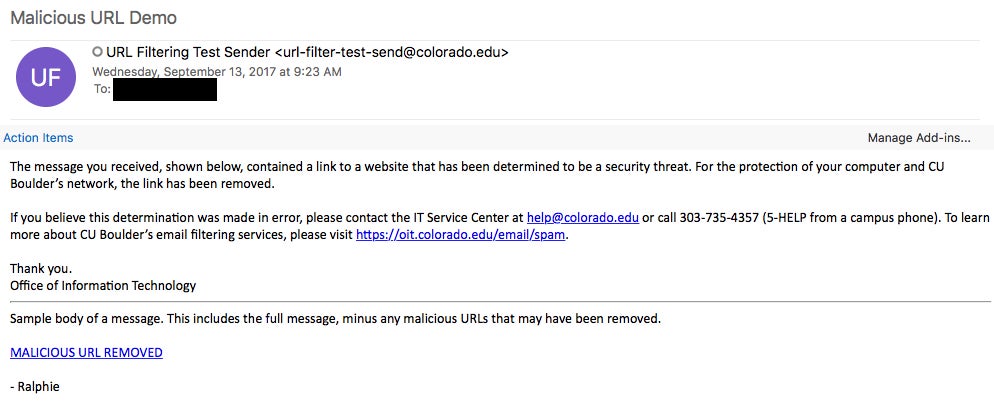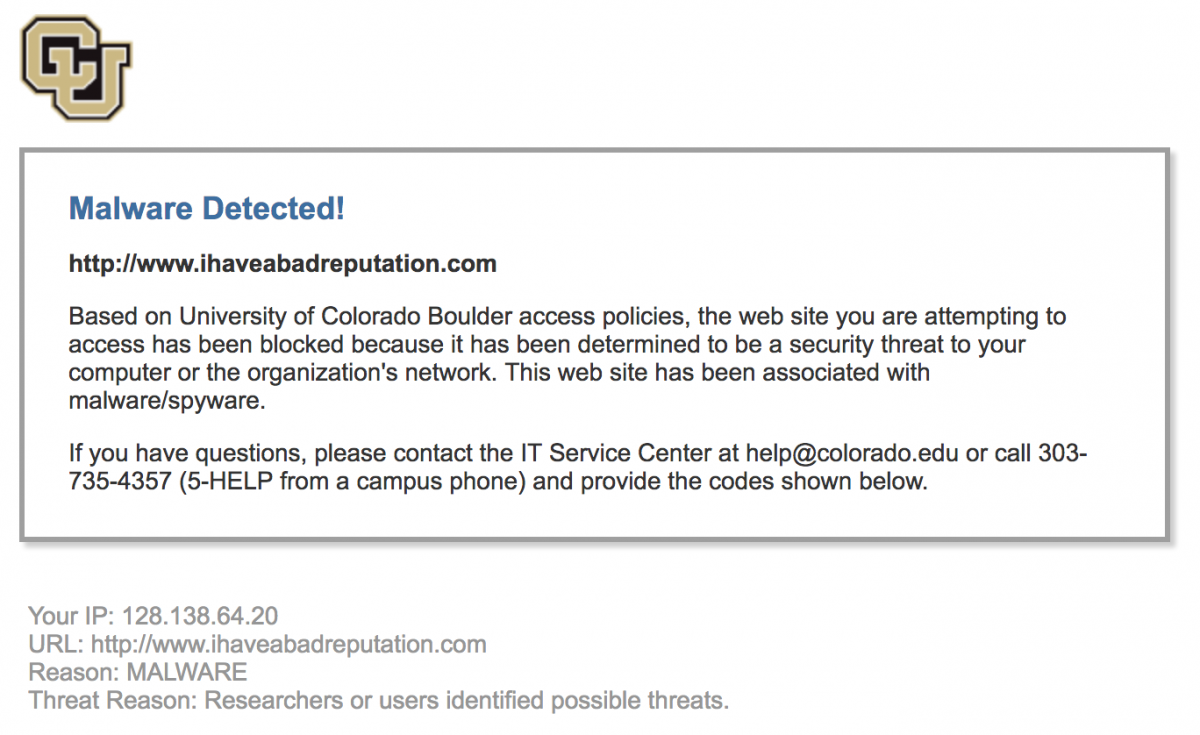New Protections from Malicious Email Web Links
On any given day, the campus email servers process over 10 million incoming emails. Before this email is delivered to inboxes, it undergoes extensive filtering to remove unsolicited messages (spam or junk mail) which account for more than 75 percent of incoming email. Starting Monday, September 18, new email filtering measures will help protect the campus from emails that contain links to malicious websites that distribute spyware or malware.
CU Boulder’s email filtering will benefit from industry-leading technology that dynamically evaluates web links in an email and makes a determination about whether a website is harmful on an ongoing basis. The filtering process could result in one of two notifications being received by campus email account owners based on the reputation score of a suspect URL.
A highly suspect web link--one that worldwide security databases have given a particularly poor reputation score--will result in email recipients receiving the email with a warning header that notes that the malicious web link has been removed as shown below.

Because a website’s reputation can change over time, the dynamic evaluation of a site’s reputation could result in the delivery of the email with no warning header, but later result in the website being blocked if, after additional review by the security service, the reputation lowers and becomes highly suspect. In these cases, when the email recipient clicks on the link, they will first see a page that warns that the website has been deemed a security threat as shown below.

This new web link filtering process will help protect your computer and our campus network from those with malicious intent, but it is no substitute for being a conscientious Internet user. Please visit OIT’s Email & Web Security page for tips on keeping your computer and data safe.
If you have questions about email filtering or your campus email account, please contact the IT Service Center at help@colorado.edu or call 303-735-4357 (5-HELP from a campus phone).